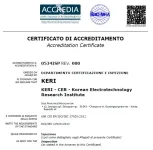(Press-News.org) PCB has been banned in most countries since the 1970s, but that doesn't mean it no longer exists. Now, deep-sea researchers report that they have found PCB at the bottom of the Atacama Trench in the Pacific Ocean.
During their expedition to the deep-sea trench, the research team retrieved sediment cores and analyzed them for PCB occurrences at five different locations in the trench. All the samples of surface sediment analyzed contained PCB.
The study, led by Professor Anna Sobek from the Department of Environmental Science at Stockholm University and Professor Ronnie N. Glud, director of the Danish Center for Hadal Research at the University of Southern Denmark, has been published in the scientific journal Nature Communications.
PCB is short for Poly-Chlorinated Biphenyls, which covers 209 different substances. They were introduced in the 1930s and have been used primarily in building materials and technical components, but are now banned in most countries and classified as a highly persistent environmental toxin. PCB can be carcinogenic and cause reproductive harm.
Although the world's production of PCBs dropped significantly in the 1970s, the substances still pose an environmental threat. In 2018 researchers reported, for example, that half of the world's killer whale populations were weakened by PCB.
Another study has found that scavenging amphipods in the deep sea contained large amounts of PCBs.
"It is thought-provoking that we find traces of human activity at the bottom of a deep-sea trench; a place that most people probably perceive as distant and isolated from our society," says Professor Ronnie N. Glud, who has participated in more than 10 expeditions to deep-sea trenches around the world.
These expeditions have helped to dispel the myth that deep-sea trenches are unaffected by what happens on the surface and have provided insight into the surprisingly rich, active, and varied life at the greatest depths of the ocean. The studies have also shown that deep-sea trenches accumulate large amounts of organic material, contributing to the oceans' ability to absorb carbon released into the atmosphere through fossil fuel burning.
However, not only organic material accumulates in deep-sea trenches, which are also called hadal trenches. For example, the Danish Center for Hadal Research reported in 2021 that mercury also accumulates in the trenches' sediments, and in 2022, a similar announcement was made about black carbon, which is particles that are mainly formed by the combustion of fossil fuels.
The concentration of PCBs in samples from the Atacama Trench is not alarmingly high, according to Ronnie N. Glud. He points out that much higher concentrations have been found in places like the Baltic Sea, North Sea, and Tokyo Bay. Concentrations 300-1500 times higher have been measured in the Baltic Sea.
“These are places with a lot of human activity, so one would expect that. The Atacama samples do not show very high concentrations but considering that they were retrieved from the bottom of a deep-sea trench, they are relatively high. A priori no one would expect to find pollutants in such a place”, says Ronnie N. Glud.
PCBs are hydrophobic, meaning they are not very soluble in water. Instead, they bind to organic material that sinks to the bottom.
“The Atacama trench is located in an area with relatively high production of plankton in surface waters. When the plankton dies, it sinks to the bottom of the ocean”, explains Anna Sobek.
In addition, large amounts of material are transported down the steep slopes and deposit in the deepest areas.
Some of the organic material that reaches the bottom of the Atacama trench is eventually decomposed by microorganisms, and as a result, PCBs accumulate in sediment.
PCBs are persistent compounds that are slowly redeposited over time, which is why increasing concentrations can be found in inaccessible areas such as the hadal trenches, even though they were largely banned worldwide in the 1970s.
“Unlike coastal areas where PCB concentrations are typically higher in deeper sediment layers deposited 50 years ago, PCB concentrations in hadal sediments are highest in the upper sediment layers, indicating that PCBs have only recently reached the deeper trenches and that concentrations have not yet peaked: We may see higher concentrations in a few years”, says Ronnie N. Glud.
The deep-sea trenches are home to many different microorganisms and animals that have adapted to the extreme living conditions. Perhaps they are also home to organisms that can metabolize the pollutants that are deposited there.
That is one of the focus points of Danish Center for Hadal Research and for this research, the center holds a solid stock of frozen sediment samples collected from expeditions to different deep-sea trenches in 2021 and 2022.
“We are interested in finding out if PCBs are also present in other deep-sea trenches or if they are unique to the Atacama trench. We also want to investigate the bacteria that live down there and learn more about their function”, says Ronnie N. Glud.
The deep-sea trenches are located in the hadal zone of the ocean, which lies at depths of 6-11 km. There are about 27 deep-sea trenches, also called hadal trenches, named after the Greek god Hades, who ruled the underworld.
END
Environmental toxin PCB found in deep sea trench
2023-04-17
ELSE PRESS RELEASES FROM THIS DATE:
KERI accredited as an inspection body by ACCREDIA for electrical equipment
2023-04-17
The Korea Electrotechnology Research Institute (KERI, President Kim Nam-Kyun), an internationally accredited testing and certification body for electrical equipment, has been accredited as a Type A Inspection Body by ACCREDIA, an international accreditation body in Italy.
An Inspection Body verifies the performance and quality of products, and an Accreditation Body attests and supervises Inspection Bodies to ensure their competence and impartiality.
ACCREDIA is a world leader in accreditation for electrical equipment. It is a full member of the International Accreditation ...
NCCS research luminaries conferred distinguished professorships in pathology and colorectal surgery
2023-04-17
Singapore, 16 April 2023 – The SingHealth Duke-NUS Academic Medical Centre (AMC) announced that Distinguished Professorships have been awarded to two research luminaries from the National Cancer Centre Singapore (NCCS). The Professorships are the highest honour bestowed upon faculty members by the SingHealth Duke-NUS AMC.
Professor Teh Bin Tean, Deputy Chief Executive Officer (Research), NCCS, and Professor, Duke-NUS Medical School, was conferred the Tan Yew Oo Professorship in Pathology and Associate Professor Iain Tan Bee Huat, Division Director of Research and Senior Consultant, Division of Medical Oncology, ...
Lower risk of severe illness and death in newborns of low-income immigrant than Canadian-born females
2023-04-17
Newborns of non-refugee immigrant females are at overall lower risk of serious illness and death than those of Canadian-born females in low-income neighbourhoods in Ontario, according to new research published in CMAJ (Canadian Medical Association Journal) https://www.cmaj.ca/lookup/doi/10.1503/cmaj.221711.
Previous research has looked at the risk of adverse outcomes for newborns in low- v. high-income neighbourhoods, but there is little evidence on the respective risks for immigrant and nonimmigrant mothers living in similar low-income neighbourhoods. Both immigration status and living in a low-income ...
Income rank linked to experience of physical pain, irrespective of whether in a rich or poor country, study suggests
2023-04-17
A new study of worldwide polling data suggests that a person’s income rank relative to their peers is linked to their experience of physical pain, with a lower income rank linked to a higher likelihood of experiencing pain. It is the first time such a relationship has been shown.
The study found the link to persist, to the same degree, irrespective of whether the person lives in a rich country or a poor country.
Income rank is the position of an individual’s absolute personal income amount in a list of those amounts ordered from lowest to highest. The higher the position in the list, the higher the income ...
Treatment with immunotherapy alone produces ‘exceptional’ response rates in some melanoma patients
2023-04-16
COLUMBUS, Ohio – Data from a national clinical trial shows that a striking 89% of patients with desmoplastic melanoma responded to immunotherapy (pembrolizumab) alone, suggesting that many patients could avoid the risk for toxicity from combination therapies and achieve cancer control with this approach to treatment.
Desmoplastic melanoma is a subset of melanoma skin cancer that is caused by high levels of ultraviolet (UV) radiation damage and, therefore, a high number of tumor mutations that all contribute to aggressive ...
SWOG S1512 trial sees high response rate to pembrolizumab in patients with unresectable desmoplastic melanoma
2023-04-16
Close to 90 percent of patients with unresectable (inoperable) desmoplastic melanoma, a rare form of skin cancer, saw their cancer improve after treatment with the immunotherapy drug pembrolizumab in a recent clinical trial.
These results from the S1512 trial conducted by the SWOG Cancer Research Network, a group funded by the National Cancer Institute (NCI), are being delivered in an oral presentation at the clinical trials plenary session of the 2023 annual meeting of the American Association for Cancer Research (AACR) in Orlando, Florida, on April 16th.
The S1512 ...
AACR: YAP/TEAD inhibitor VT3989 is well tolerated and shows antitumor activity in advanced mesothelioma and NF2-mutant cancers
2023-04-16
ABSTRACT: CT006
ORLANDO, Fla. ― The first-in-class YAP/TEAD inhibitor VT3989 was well tolerated with durable antitumor responses in patients with advanced malignant mesothelioma and other tumors with NF2 mutations, according to results of a Phase I trial led by researchers at The University of Texas MD Anderson Cancer Center. The first-in-human study was presented today at the American Association for Cancer Research (AACR) Annual Meeting 2023.
Seven of 69 patients had radiological partial responses that persisted up to at least 21 months, indicating tumor shrinkage, while 34 had stable disease. Patient benefit was observed in patients with both mesothelioma ...
AACR: Penn Medicine preclinical study identifies new target for recurrent ovarian cancer
2023-04-16
ORLANDO – Despite recent advances, ovarian cancer remains the fifth leading cause of cancer-related deaths among women, and there’s a critical need for new treatment options, especially for advanced cancers that grow back after standard of care treatment. Results from a preclinical study, led by researchers from the Perelman School of Medicine at the University of Pennsylvania, verified a new target for drug-resistant ovarian cancer and provided data to support a treatment approach that is already making its way into clinical trials.
Sarah Gitto, PhD, an instructor of Pathology and Laboratory ...
Adding new vaccine type to leading immunotherapy dramatically reduced melanoma recurrence
2023-04-16
VIDEO OF RESEARCHER AND PATIENT COMMENTARY IS AVAILABLE AT:
https://bcove.video/3mxxASq
The combination of an experimental mRNA vaccine with an immunotherapy reduced the likelihood of melanoma recurring or causing death by 44% when compared to immunotherapy alone, a new clinical trial shows.
Led by researchers at NYU Langone Health and its Perlmutter Cancer Center, the randomized phase 2b trial involved men and women who had surgery to remove melanoma from lymph nodes or other organs and were at high risk of the disease returning in sites distant from the original cancer. ...
AACR: Lung cancer outcomes significantly improved with immunotherapy-based treatment given before and after surgery
2023-04-16
ABSTRACT: CT005
ORLANDO, Fla. ― A regimen of pre-surgical immunotherapy and chemotherapy followed by post-surgical immunotherapy significantly improved event-free survival (EFS) and pathologic complete response (pCR) rates compared to chemotherapy alone for patients with operable non-small cell lung cancer (NSCLC), according to Phase III trial results presented today by researchers from The University of Texas MD Anderson Cancer Center at the American Association for Cancer Research (AACR) Annual Meeting 2023.
The ...





